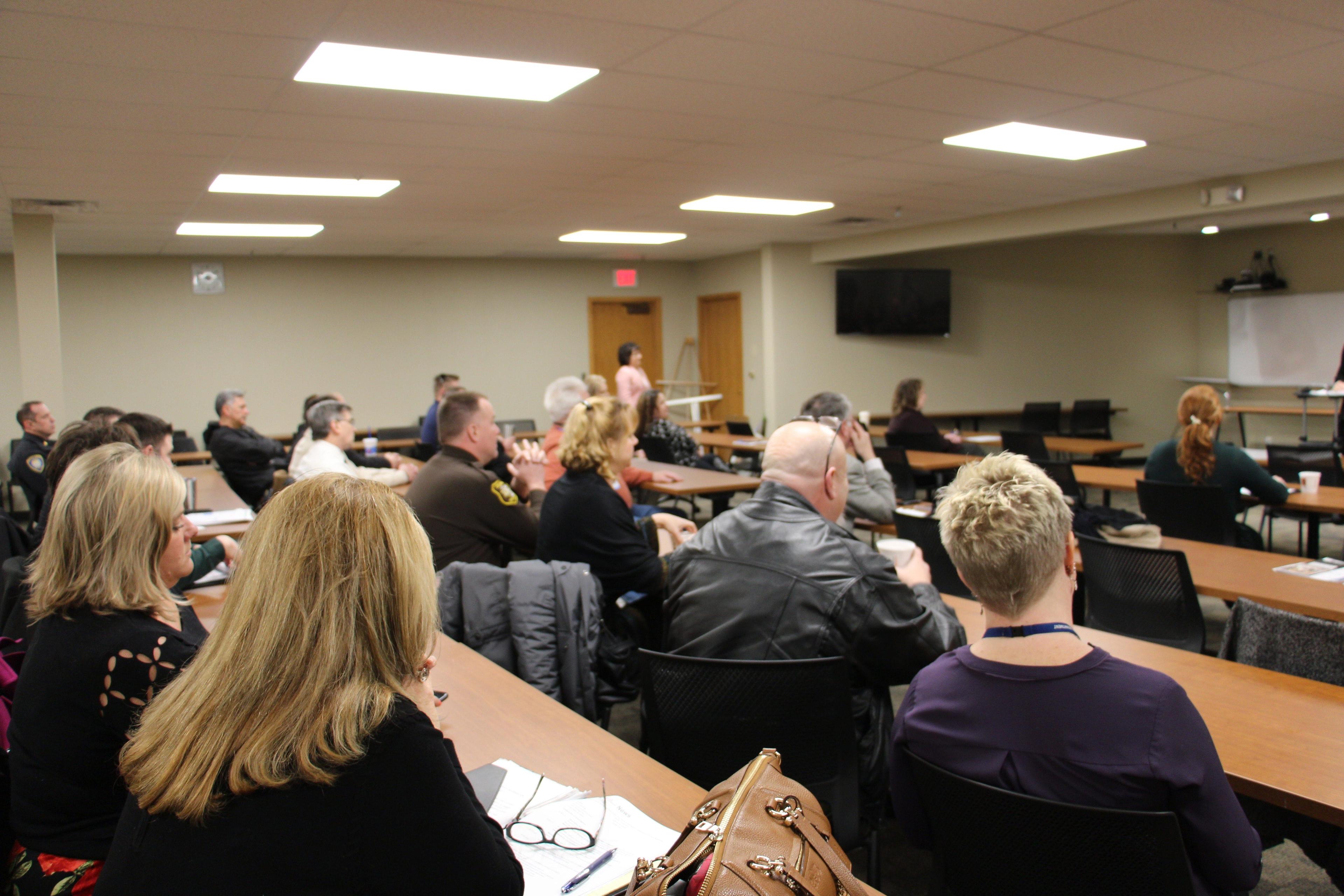Taking Action: Fighting Opioid Abuse Through Collaboration in Calhoun County
Lucy Ciaramitaro
| 3 min read

In 2016, more accidental drug overdose deaths occurred than motor vehicle accidents in Calhoun County. Nine out of ten of these deaths involved an opioid. Years before opioid misuse was declared an epidemic, the Substance Abuse Council in Battle Creek recognized several residents struggling with addictions to methamphetamine and prescription drugs. In 2009, they convened a group of police officers and community groups to address the issue. Over the years, what started as a group providing safe disposal sites evolved into an ongoing partnership between local law enforcement, the health department, doctors and hospitals, courts, local non-profits, schools and treatment facilities. Today, it is known as the Calhoun County Opioid Coalition. “As the heroin and opioid epidemic grew, we all knew more time needed to be lent solely to addressing the issue,” said Dawn Smith, executive director of the Substance Abuse Council. “We’re fortunate to work with people in the community who value the individuals and families who need our help.” One of the key players in this coalition is Summit Pointe Recovery Center, an organization committed to helping those with mental health issues, substance use disorders and developmental disabilities reclaim independence, regain confidence and learn skills necessary for success. William Nettleton, MD, MPH, medical director, Calhoun County Public Health Department, and now the co-chair of the Calhoun County Opioid Coalition, is one of the people who helped open the door to support from the medical community. Every month, the coalition works with hospitals to gather local data on non-fatal heroin and opiate overdoses. By sharing this with the public, they’ve mobilized more people and painted a picture of how the epidemic impacts their immediate community. The Calhoun County Opioid Coalition is one of nine community organizations to receive grant funding through the Taking Action on Opioid and Prescription Drug Abuse in Michigan by Supporting Community Responses initiative, courtesy of Blue Cross Blue Shield of Michigan, The Blue Cross Blue Shield of Michigan Foundation, The Michigan Health Endowment Fund, The Community Foundation for Southeast Michigan and The Superior Health Foundation. With $70,000 in grant funding, the Calhoun County Opioid Coalition hopes to reduce opioid-related fatal overdoses and establish a community opioid dashboard and resource network as a foundation for opioid improvement efforts in the county. As part of those efforts, the funding will help the coalition employ a targeted opioid overdose education and naloxone distribution program at Summit Pointe Recovery Center, which serves at-risk clients for opioid overdose. The coalition's dashboard aims to provide a uniform, local profile of opioid-related facts for both stakeholders and community members. The up-to-date data will be used for targeted health improvement efforts and enable others to replicate best practices and improve access to substance abuse, mental health and social services in Calhoun County. “Collaboration is how we get things done,” Smith said. “Our coalition is embedded into this community and regardless of the issue we’re addressing, we never feel alone.” To grow your knowledge about opioids and opioid misuse, as well as Blue Cross’ commitment to combating the opioid epidemic, visit these blogs:
- Taking Action: Multi-Pronged Approach Fighting Opioids in Northern Michigan
- Taking Action: Prevention Driving U.P. Coalition Efforts to Combat Opioids
- Opioid Abuse in Someone You Love: Recognizing the Signs
This post is part of our Taking Action series, in which we’ll focus on Blue Cross-supported efforts across Michigan to address the opioid epidemic. Check back to find out how other communities are fighting the problem of opioid use disorder and overdose, or visit Blue Cross’ opioids 101 online resource page at www.mibluesperspectives.com/opioids101. Photo Credit: Blue Cross Blue Shield of Michigan





